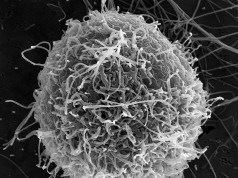By, Robert A. Wascher, MD, FACS
Last Updated: 02/22/2009
The information in this column is intended forinformational purposes only, and does not constitute medical advice or recommendations by the author. Please consult with your physician before making any lifestyle or medication changes, or if you have any other concerns regarding your health.
HEALTH DIFFERENCES BETWEEN AMERICANS & EUROPEANS
I have commented before about the striking discordance between the amount of money that we spend on health care in the United States and the health outcomes that we achieve with all of those dollars. At more than $2 trillion dollars per year, or more than $7,000 per citizen per year, the U.S. spends more on health care than virtually every other country in the world. One would, therefore, assume that all of those trillions of health care dollars would translate into a globally unsurpassed level of health and well being in America.However, one would actually be mistaken in this assumption, as the United States lags behind many other countries of the world, including a few relatively underdeveloped countries, in several very important public health benchmarks.As if this were not bad enough, the worlds richest nation has an estimated 47 million uninsured citizens, with millions more possessing utterly inadequate health insurance coverage (millions of us in this country are just one serious illness away from financial ruin).
Health care reform in the United States continues to be a political third rail, although virtually all stakeholders are in agreement that our healthcare system is dysfunctional and inefficient, and that it offers the American people very poor value for their money.However, there is considerable disagreement regarding the root causes that underlie the acknowledged deficiencies in our health care system, which means that there is also pervasive disagreement regarding the best interventions to undertake.Amidst the worst economic downturn since the Great Depression, and with no end in sight to the ongoing Not-Quite-As-Great-Depression, it is unclear whether or not the fledgling Obama Administration will be able to assemble the political capital and the will to wade into the treacherous waters of health care reform within the foreseeable future.
A new research study, just published in the American Journal of Public Health, provides a rather stark comparison between the health status of rich and poor adults in the United States and Europe.In this study, more than 17,000 adults between the ages of 50 and 74 years were interviewed from among 10 European countries.Nearly 7,000 Americans of similar age were also interviewed for this study.The researchers assessed these 24,000 middle-aged and elderly adults for 6 chronic illnesses that are commonly accepted as indicators of the overall health of a society.
In general, the American adults reported poorer overall health than their European counterparts.While the differences in health between the two groups of adults were, not surprisingly, more pronounced among poorer patients, even the wealthier Americans reported more problems with their health when compared to wealthy Europeans.At the same time, the gap in health status between rich and poor was much smaller among Europeans than was observed among the American patients who participated in this study.(As a striking example of the health disparities between Americans and Europeans, heart disease, the number one cause of death in most developed countries, was present in 18 percent of Americans, but in only 11 percent of Europeans, in this study.)
This study puts some important numbers on health trends that have become increasingly obvious over the past few decades.When comparing health outcomes between two populations of patients that live in similarly modern, industrialized, and western societies, the United States fares very poorly, indeed.
Our nations focus on disease prevention is haphazard and poorly executed, resulting in unacceptably high rates of preventable diseases and disease-related complications.Rather than investing our nations wealth in disease prevention and screening programs, we, instead, backload our inefficient and byzantine health care system with trillions of dollars, every year, to treat the complications of diseases that are, in many cases, almost entirely preventable.European countries spend, on average, only 50 to 60 percent as much on health care, per capita, as we do here in the United States, and yet their health outcomes frequently exceed ours in multiple critical areas of public health.
While we may not all agree on every detail, almost all of us agree that our health care system is fundamentally broken, and that we cannot go on with business as usual any longer.Despite the ongoing implosion of the economy, we must somehow find the will and the foresight to overhaul our current fractured and wasteful health care system, including a much greater emphasis on promoting healthful lifestyle habits, and improved disease prevention and screening programs.As the average age of our population continues to rise, our ongoing failure to step up to the plate and fix our dysfunctional health care system will, increasingly, cost our nation dearly.
LYCOPENE & PROSTATE CANCER
As regular readers of this column already know, recent research data has been quite unkind to many vitamins and other dietary supplements that were previously thought to have a potential role in disease prevention.While the vitamin and supplements industry remains a multi-billion dollar business, large prospective clinical research trials in recent years have, repeatedly, shown no health benefits from taking vitamin supplements, and in some cases, certain vitamin supplements appear to actually worsen health.
As in so many other cases, laboratory research studies using cancer cells growing in Petrie dishes have previously suggested that lycopene, a member of the Vitamin A family, might be toxic to prostate cancer cells.This, predictably, has spurred tens of thousands of men to take lycopene supplements in hopes of preventing prostate cancer.However, a small new prospective clinical and laboratory research trial, just published in the Journal of Urology, suggests that lycopene may not offer any clinical benefit as a treatment adjunct in men with advanced prostate cancer.
In this small pilot study, 17 adult patients with prostate cancer refractory to other treatments were given 15 milligrams of lycopene per day for 6 months.During the course of this study, both the clinical progression of these patients prostate cancers and the level of prostate specific antigen (PSA) in their blood were monitored.Unfortunately, there was no clinically detectable benefit of lycopene on the progression of prostate cancer in these men.
While this was a very small pilot study, with limited statistical power, its results are nonetheless disappointing.Previous studies of lycopene and prostate cancer have largely relied upon so-called in vitro research on prostate cancer cells growing in a laboratory dish, or on dietary surveys in epidemiology studies.These are popular methodologies of cancer prevention and treatment research because they are quick and inexpensive to perform.But the vast majority of the findings of these types of lower-level research studies are, unfortunately, never confirmed by high-level prospective, randomized clinical research trials.
Given the very small number of patients enrolled in this pilot trial, and the relatively short duration of follow-up, a larger, placebo-controlled, prospective, randomized clinical trial with lycopene should be undertaken.The men in this small pilot study also had advanced prostate cancer that had become resistant to current treatments, and so it might be helpful to perform a larger clinical trial with men who have intermediate-stage prostate cancer, in the hope that a more modest benefit from lycopene, if it exists, might be identified.For now, however, the clinical evidence remains extremely weak that lycopene has any useful role to play in either the prevention or treatment of prostate cancer (indeed, I stopped taking lycopene, myself, several years ago, when I concluded that the available clinical data did not support its use as a cancer prevention agent).
Disclaimer: As always, my advice to readers is to seek the advice of your physician before making any significant changes in medications, diet, or level of physical activity
Dr.Wascher is an oncologic surgeon, a professor of surgery, a widely published author, anda Surgical Oncologist at the Kaiser Permanente healthcare system in Orange County, California
Send your feedback to Dr. Wascher at:
Dr. Wascher’s Biography
Links to Other Health & Wellness Sites
Copyright 2009
Robert A. Wascher, MD, FACS
All rights reserved
Dr. Wascher’s Archives:
2-15-2009:Statin Drugs & Death Rates; Physical Activity, Breast Cancer & Sex Hormones
2-8-2009:Hormone Replacement Therapy (HRT) & Breast Cancer; Stool DNA Testing & Cancer of the Colon & Rectum
1-25-2009:Prostate Cancer, Fatigue & Exercise; Does your Surgeon Warm-up Before Surgery?
1-18-2009:Cancer and Vitamins; Teenagers, MySpace and Risky Behaviors
Exercise Reverses Some Effects of Fatty Meals; Vitamin C and Blood Pressure
12-28-2008:Stress & Your Risk of Heart Attack; Vitamin D & the Prevention of Colon & Rectal Polyps
12-7-2008:Generic vs. Brand-Name Drugs, Stress & Breast Cancer Survival
11-23-2008:Breast Cancer & Fish Oil; Lymphedema after Breast Cancer Treatment; Vasectomy & Prostate Cancer Risk
11-9-2008:Statins Cut Heart Attack Risk Even with Normal Cholesterol Levels; Statins & PSA Level
11-2-2008:Radiation Treatment of Prostate Cancer & Second Cancers; Sexual Content on TV & Teen Pregnancy Risk
10-26-2008:Smoking & Quality of Life
10-19-2008:Agent Orange & Prostate Cancer
10-12-2008:Pomegranate Juice & Prostate Cancer
10-5-2008:Central Obesity & Dementia; Diet, Vitamin D, Calcium, & Colon Cancer
9-28-2008:Publication & Citation Bias in Favor of Industry-Funded Research?
9-21-2008:Does Tylenol® (Acetaminophen) Cause Asthma?
9-14-208:Arthroscopic Knee Surgery- No Better than Placebo?; A Healthy Lifestyle Prevents Stroke
8-23-2008:Alcohol Abuse Before & After Military Deployment; Running & Age; Running & Your Testicles
3-16-2008:Benefits of a Full Drug Coverage Plan for Medicare Patients?; Parent-Teen Conversations about Sex; Soy (Genistein) & Prostate Cancer
2-23-2008:Universal Healthcare Insurance Study; Glucosamine & Arthritis
2-3-2008:Vitamin D & Cardiovascular Health; Vitamin D & Breast Cancer; Green Tea & Colorectal Cancer
1-12-2008:Statins, Diabetes & Stroke and Obesity; GERD & Esophageal Cancer
12-31-2007:Minority Women, Hormone Replacement Therapy & Breast Cancer; Does Health Insurance Improve Health?





